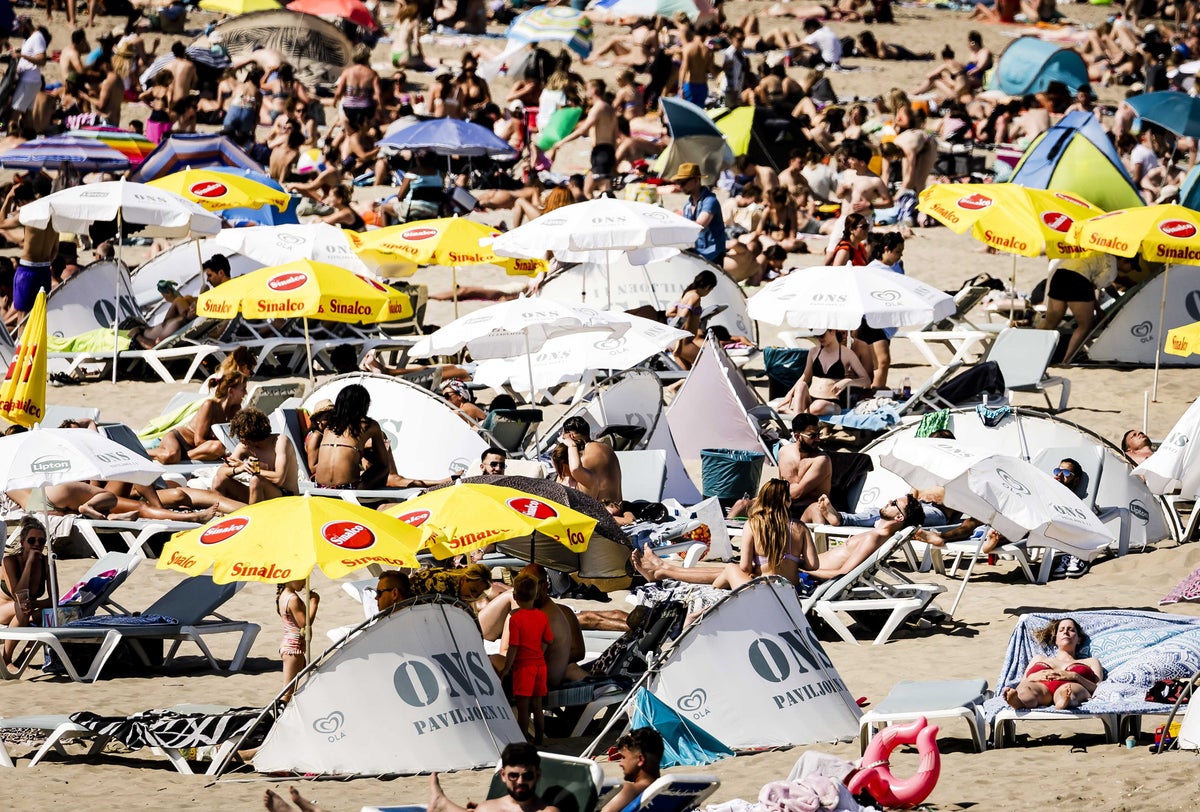
Cases of deadly skin cancer across age groups have reached a record high in the UK with 17,500 people diagnosed each year, a charity has said.
According to Cancer Research UK, the boom of cheap holiday packages in the 1960s has been linked to the rise in melanoma skin cancer among older adults.
The charity pointed to a particular rise in cases among adults aged 55 and over, with case rates among this age group rising 195 per cent since the 1990s.
Between 1993 and 1995, 21.3 people aged 55 and over were diagnosed with melanoma out of every 100,000, this rose to 62.9 cases per 100,000 in 2017-2019.
"The rise in rates in over-55s is likely to be linked to trends to have tanned skin and the cheap package holiday boom dating from the 1960s before people became more aware of skin cancer," the charity told PA.
It estimates that across all age groups, melanoma skin cancer cases could increase by around 50 per cent over the next 20 years, hitting a record 26,500 a year by 2040.
There are two types of skin cancer; melanoma, the deadliest form of which around 13,000 new cases are diagnosed each year in the UK, and non-melanoma, of which there are more than 100,000 new cases diagnosed every year.
The risk of melanoma is doubled if a person has had five or more sunburns at any age, according to the Skin Care Foundation, but experiencing just one blistering sunburn in childhood or adolescence more than doubles a person’s chances of developing melanoma later in life.
Non-melanoma comes in two most common forms: basal cell carcinoma, which accounts for about 75 per cent of skin cancers, and squamous cell carcinoma, which accounts for about 20 per cent. It is mainly caused by overexposure to UV light.
However, despite the rise in cases, deaths from the disease are decreasing, Cancer Research UK said, adding that early diagnosis and treatment will lead to more people surviving the disease.
The charity's chief executive Michelle Mitchell said: "Our new analysis paints a mixed picture for cancer patients and the staff who care for them - while it's promising that more people are seeking treatment for skin cancer earlier and survival is improving, it's alarming that cases of the disease could soar over the coming years.
"Melanoma is the UK's fifth most common cancer, and we know that 86 per cent of these skin cancers could be prevented.
"It's important to take care in the sun and to contact your GP if you notice any unusual changes to your skin - it's not just changes to a mole that matter, it could be a sore that doesn't heal or any unusual changes to an area of your skin. Spotting cancer early can make all the difference."
Cancer Research UK’s head of health and patient information Dr Julie Sharp added: “Whether you are holidaying abroad or enjoying the good weather closer to home, it’s important to take steps to reduce your risk of skin cancer, especially if you burn easily. And remember sunburn doesn’t just happen on the hottest days, you can still get burnt when it’s cloudy.
“The best way to protect your skin when the sun is strong is to spend time in the shade, especially between 11am and 3pm in the UK, and to cover up with a T-shirt, hat and sunglasses. Wearing sunscreen will also help you stay safe in the sun. Make sure you put plenty on and reapply it regularly.”
With inputs from agencies







